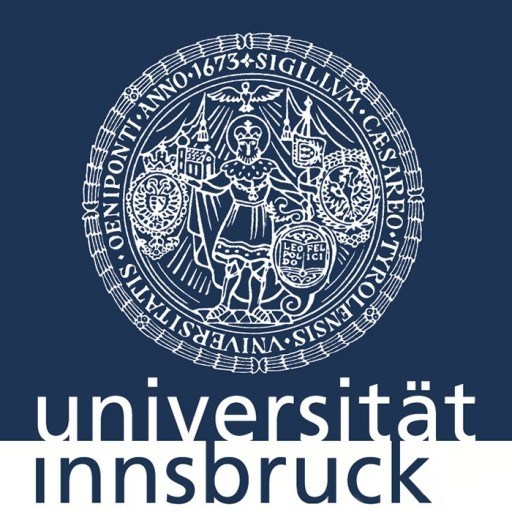Photos of university / #uniinnsbruck
Meteorology and Atmospheric Sciences at the University of Innsbruck offers a comprehensive curriculum designed to provide students with a deep understanding of the Earth's atmosphere, weather phenomena, and climate systems. This programme combines theoretical knowledge with practical skills, preparing graduates for careers in weather forecasting, climate research, environmental monitoring, and related fields. Throughout the course, students explore various aspects of atmospheric physics, dynamics, and chemistry, as well as data analysis techniques and modeling approaches used to study atmospheric processes. The programme emphasizes the importance of interdisciplinary understanding, integrating meteorology with environmental science, statistics, and computer science to equip students with versatile competencies. Students benefit from state-of-the-art laboratory facilities, climate laboratories, and access to modern computational tools, allowing them to conduct independent research and participate in real-world projects. Additionally, the programme encourages engagement with current issues such as climate change, renewable energy, and disaster risk management, fostering a holistic approach to atmospheric science. Graduates of this programme are well-prepared for careers in public meteorological services, environmental agencies, research institutions, or further academic study. The curriculum is structured to promote critical thinking, data interpretation, and problem-solving skills essential for understanding and forecasting complex atmospheric phenomena. With a focus on both local and global atmospheric systems, students gain a broad perspective on the impact of climate variability and change. Overall, the Atmospheric Sciences programme at the University of Innsbruck aims to cultivate skilled scientists and researchers dedicated to advancing knowledge and solutions in atmospheric and climate sciences.
1st semester
- U Atmospheric Radiation and Remote Sensing
- VU Physics of the Climate System
- VU Geophysical Fluid Dynamics
- VU Mountain Meteorology
- Boundary Layer Meteorology
- VO Numerical Methods for Models in Atmospheric Sciences
- PS Numerical Methods for Models in Atmospheric Sciences
2nd semester
- Atmospheric Chemistry and Biogeochemistry
- The Cryosphere as Part of the Climate System
- Advanced Weather Forecasting
- Geostatistics
- Scientific Programming
- Field Course Atmospheric Sciences
3rd semester
- Elective Modules
- Interdisciplinary Skills
- Numerical Modeling of Weather and Climate
- Modeling of the Cryosphere and Climate System
- Reading, Writing and Presenting Scientific Content
4th semester
- Master's Thesis
- Master's Thesis Defence
Requirements
- Completed a bachelor's degree in a relevant related field.
- Transcript of records including number of ECTS-Credits completed,
- Curriculum vitae,
- Proof of German language ability (level B2)
as well as (originals or officially certified copies):
- Notice (“Bescheid”) confirming awarding of bachelor’s degree,
- Diploma certificate,
- Examination certificate,
- Diploma Supplement
- Transcript (list of examinations completed).
The financing options for the Atmospheric Sciences degree program at the University of Innsbruck include a variety of funding opportunities aimed at supporting both domestic and international students. Tuition fees are generally structured according to the regulations of the Austrian government and university policies. For EU/EEA students, tuition fees are typically waived or set at a relatively low annual rate, which makes studying more affordable for citizens of member states. Non-EU students may be required to pay higher tuition fees, which are specified upon application.
Students can finance their studies through several channels. The university offers information on scholarships and grants that are available for students based on academic achievement, financial need, or specific criteria such as nationality or field of study. These scholarships are often awarded by the university itself or in cooperation with external organizations and are designed to reduce the financial burden of higher education.
In addition to scholarships, students may receive funding from governmental or private financial aid programs. Austria has various student loan schemes and financial support options that students can access to cover tuition and living costs. International students are encouraged to explore opportunities for scholarships offered by their home countries or through international programs such as Erasmus+. The Erasmus+ program, in particular, provides mobility grants for students participating in exchange programs within Europe, which can significantly assist with living expenses during study periods abroad or at partner institutions.
Part-time employment is another method of financing studies in Innsbruck. The university and the city provide a range of part-time job opportunities suitable for students, including positions on campus or in the local community. These jobs help students gain work experience while supporting their financial needs. Regulations regarding working hours and income limits are set to ensure that employment does not interfere with academic progress.
Cost of living in Innsbruck, which includes accommodation, transportation, food, and personal expenses, is a relevant factor. Budgeting and financial planning are advised for students to manage their expenses effectively. The university's student services and international office provide guidance and resources to help students plan their finances.
Overall, the University of Innsbruck offers a variety of financial aid options and support systems to facilitate access to the Atmospheric Sciences program. Prospective students are encouraged to thoroughly research and apply to relevant scholarships, consider part-time work opportunities, and explore available loans or grants to ensure their financial stability throughout their studies.
The Master’s degree program in Atmospheric Sciences at the University of Innsbruck offers students an in-depth understanding of the Earth's atmosphere, its processes, and its interactions with the climate system. This program is designed to equip students with the theoretical knowledge and practical skills necessary for careers in weather forecasting, climate research, environmental consultancy, and related fields. The curriculum typically covers fundamental topics such as atmospheric physics, dynamic meteorology, atmospheric chemistry, and climate change. Students also have opportunities to specialize in specific areas like regional climate modeling, atmospheric remote sensing, or air quality management.
The program emphasizes a strong foundation in quantitative methods and the use of modern computational tools for atmospheric data analysis and modeling. Practical training often includes laboratory work, field measurements, and the use of meteorological equipment. Students can participate in research projects, often collaborating with national and international institutions, providing valuable experience and networking opportunities. The program promotes interdisciplinary approaches, integrating knowledge from physics, chemistry, and environmental sciences to address complex atmospheric phenomena.
The language of instruction is primarily English, which attracts an international student body. Graduates of this program are prepared for diverse roles in academia, government agencies, meteorological services, environmental organizations, and private sector companies involved in climate and weather-related services. The university supports students with dedicated academic advising, access to advanced laboratories, and participation in conferences and workshops.
The program duration is typically four semesters for full-time students, leading to a Master of Science (MSc) degree. Admission requirements usually include a relevant undergraduate degree, proficiency in English, and relevant academic background. Graduates may pursue further research through doctoral studies or enter the workforce directly, applying their skills to solve real-world atmospheric challenges. Overall, the Atmospheric Sciences program at the University of Innsbruck offers a comprehensive education that prepares students for impactful careers in understanding and managing atmospheric and climate-related issues.










